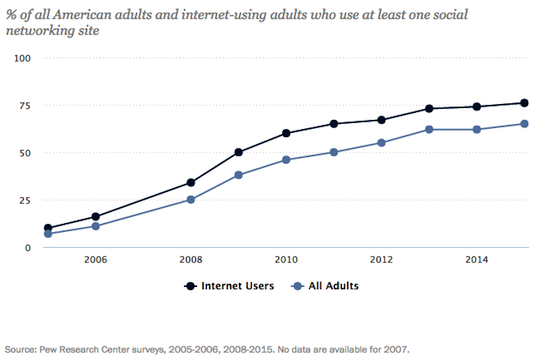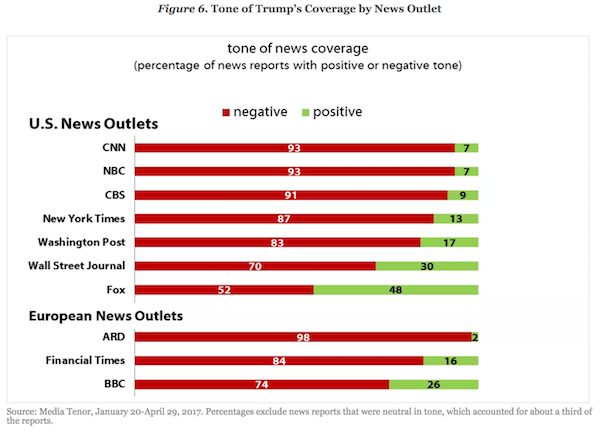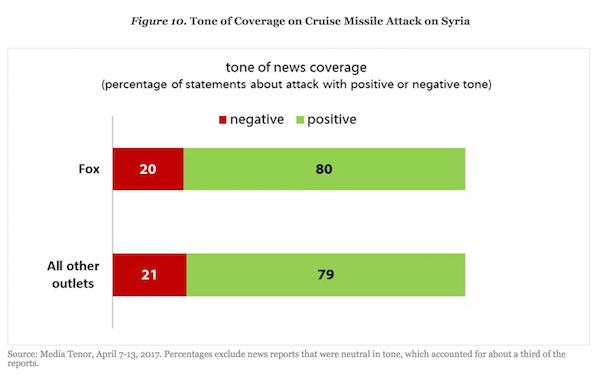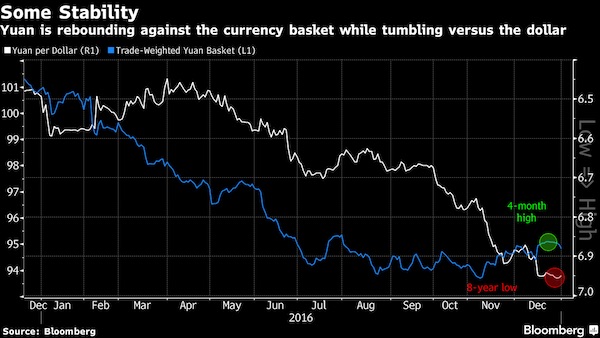
NPC Confiscated still, Washington, DC 1922
I’m sorry, or I guess I am, but I find it hard not to constantly read up on the news about flight MH17 these days, and I let it drown out other things. Obviously, there’s plenty of it available in Dutch media, with much more to drown even that out in the English language press.
For a country the size of Holland, losing 193 people in one go evokes the six degrees of separation. And that makes sense, grief must be shared in order to heal. I just – or think that I should – wish I had more confidence in today’s people’s abilities to make that experience real, instead of to a large extent mass media induced.
And besides, closely connected, who would want to talk about yen and interest rates when lighting strikes so close to home? Which reminds me of why I talk about those things all the time: to try and make as many people as I possible can think about the difference between what they’re being told, and what is actually happening to them and to the world around them.
The aftermath of the plane crash reveals once more, as if there was a need, what an uphill struggle that is. The pre-fab picture of what is supposed to be perceived as ‘them’ and as ‘evil’ goes down hook line and sinker, without hardly anyone asking for a shred of proof; it doesn’t seem to matter one bit.
The enemy is given a face, and a carefully crafted storyline, and we’re off to the horses. You could be excused for being inclined to wonder why they bother to teach people how to read. Perhaps the idea is that it makes the story go down faster.
Accusations, allegations, insinuations, suspicions, we’re being treated to a boxful of chocolates and some of us know exactly what we’re going to get, but then they’re not our treats, they’re for the others, the ones with the sugar addiction.
The best thing I can hope for, and perhaps all of us can, is that a few people will see in a sliver of light shining through the present parade of fighting innuendo, what it is they’re being told, and have been told for many years now, about their economies, their savings, their pensions, and the future of their children.
That those stories have as much truth and proof in them as the ones about who started the battles in Iraq, and Kiev, and East Ukraine. That this is an MO: to tell people what you want them to believe, clad in carefully crafted spin, so they’ll support whatever power games your twisted minds are playing, power over a county, a country, a planet.
That’s really the best to hope for: a few more people who hear the metal click of the coin drop, whether it’s about plane crashes or economic crashes; a few more who would like to see at least a shred of proof before their minds are made up for them.









• The Grave Future Of British Public And Private Debt (Guardian)
When interest rates begin to rise, we’re told they will top out at 3%. Don’t worry, homeowners, say the rate-setters, crippling monthly payments are a thing of the past. Charlie Bean, the former deputy governor of the Bank of England and one of the rate-setters until last month, made it clear that the scale of household debts made it impossible to return to something like normal within the next 10 years. Almost casually, this picture painted by Bean has become generally accepted: that monetary policy will be determined largely by how long it takes to nurse homeowners back to health. Not just this year and next, when the recovery is sustainable, but for much longer, by which he means until their finances are considerably more robust. There are several critics of this view, including Boris Johnson’s economic adviser Gerard Lyons, who said last week that rates should canter towards 6%.
Lyons, a former City analyst, is among a minority in the Square Mile who subscribe to a more optimistic outlook for the nation’s economic health and the consumer’s ability to shop and pay their debts at the same time. Yet this possibly London-centric view underestimates the sheer scale of debts already accumulated and, after a brief period of repayment, the need to feed consumption with debt. There is also the government balance sheet to consider. With increasing burdens on its spending, the ability of governments to support consumer spending – as they have done in recent years with a constant diet of tax credits and tax cuts – will become limited. A report published this month by the independent Office for Budget Responsibility (OBR) mapped out how Whitehall faces a massive squeeze on its finances over the next 45 years just to cope with an ageing society. The report said this would amount to 4.8% of GDP, or £79bn a year in today’s terms.
It’s a guesstimate, yet it is only a partial view of the total mismatch between income and expenditure. In recent months, anti-poverty campaigners have grown agitated about the broader legacy of debt. Since its inception, private finance initiatives have created about £239bn of liabilities for the taxpayer, with costs being carried forward over the next 20 to 30 years. The university tuition-fee reforms, which allowed the government to transfer almost the entire cost to undergraduates, also kicked the repayments well into the future. Earlier this year, the House of Commons public accounts committee reported current outstanding student debt of £46bn on the government’s books, a figure set to rise to £200bn by 2042 with an estimate attached that shows more than £70bn will never be repaid. Costs for the National Health Service are also growing rapidly and a £30bn shortfall on current spending is predicted by health chiefs as early as 2020.
Read more …

• Sovereign Debt Back At Square One (Guardian)
Argentina and its bankers have been barred from making payments to fulfil debt-restructuring agreements reached with the country’s creditors, unless the 7% of creditors who rejected the agreements are paid in full – a judgment that is likely to stick, now that the US supreme court has upheld it. Though it is hard to cry for Argentina, the ruling in favour of the holdouts is bad news for the global financial system and sets back the evolution of the international regime for restructuring sovereign debt. Why is it so hard to feel sympathy for a developing country that is unable pay its debts? For starters, in 2001 Argentina took the unusual step of unilaterally defaulting on its entire $100bn debt, rather than negotiating new terms with its creditors. When the government finally got round to negotiating a debt swap in 2005, it could almost dictate the terms – a 70% “haircut”.
In the intervening decade, President Cristina Fernández de Kirchner and her late husband and predecessor, Néstor Kirchner, have pursued a variety of spectacularly bad economic policies. The independence of the central bank and the statistical agency has been severely compromised, with Fernández forcing the adoption, for example, of a consumer price index that grossly understates the inflation rate. Contracts have been violated, foreign-owned companies have been nationalised, and when soaring global prices for Argentina’s leading agricultural commodities provided a golden opportunity to boost output and raise chronically insufficient foreign-currency earnings, Fernández imposed heavy tariffs and quotas on exports of soy, wheat and beef.
Some might counter that the holdout hedge funds that sued Argentina deserve no sympathy either. Many are called “vulture funds”, because they bought the debt at a steep discount from the original creditors, hoping to profit subsequently through court decisions. The problem with the Argentine debt case has little to do with the moral failings of either the plaintiffs or the defendant. It lies in the precedent it establishes for resolving future international debt crises.
Read more …

So, where to now?
• A Junk-Bond Warning: Investors Exit As Yields Rise (MarketWatch)
Weeks of falling junk bond prices have started to spook some bond investors, signalling that the record run for the riskiest part of corporate debt may be ending. Bond investors have been piling into high-yield debt for years as they search for income in a low-rate environment, but yields had dropped so much that even the Federal Reserve, normally not one to comment on asset prices, has raised concerns. “Those valuations are very, very lofty right now. We’re talking to clients about taking everything they own and paring back credit risk from the weakest part of the credit universe,” said Richard Sega, chief investment officer at investment manager Conning, which manages $92 billion in assets.
Investors may be taking all that advice to heart. In the week ended Wednesday, mutual funds and exchange-traded funds that invest in high yield bonds saw a total of $1.68 billion in redemptions, marking the largest outflow since August 2013, according to data from Lipper. However, the selloff hasn’t extended to other parts of the bond market. While investors have been pulling money out of junk bonds, they actually increased exposure to investment-grade corporate debt. The outflow from the junk-bond part of the market comes amid a decline in price and corresponding rise in yields over the past month. The Barclays High Yield Bond index, which is tracked by the SPDR Barclays High Yield Bond ETF, has seen yields rise from a record low of 4.83% on June 20th to 5.17% on Wednesday. That’s still low by historical standards, but a sign that valuations have softened.
Read more …

If only they did. Or we did, for that matter.
• Smart Countries Create And Shape Their Own Markets (Observer)
Last week in Fortaleza, Brazil, the five Brics nations – Brazil, Russia, India, China and South Africa – finally signed a deal to create a $50bn new development bank and a $100bn contingent reserve arrangement. The new financial institutions are seen by many as nothing less than a challenge to the existing financial world order led by the IMF and the World Bank. These new institutions have many hurdles to overcome before they can be established, but perhaps their greatest challenge is the one they pose to entrenched thinking. Why have any intervention of this scale if growth, as many argue, is mainly driven by private finance and privatebusiness?
Economist Joseph Schumpeter, known for his cutting-edge work on the effect of technological change in transforming capitalist economies, and who brought the term “creative destruction” to prominence, got one thing wrong: he called financial markets the ephors (Spartan leaders) of capitalism. He believed finance to be so powerful because innovation must be financed: without new financial instruments willing to fund activities outside the current status quo, entrepreneurs will not be able to bring their ideas to market. The reason he got it wrong is that he did not realise what would happen later: finance not funding investment or innovation in the “real economy” but finance funding… well, finance.
Indeed, the origins of the financial crisis and the massive and disproportionate growth of the financial sector originated in the 1970s, as finance became increasingly de-linked from the real economy. Things became worse in the early 2000s when banks began increasingly to lend to other financial institutions, via wholesale markets, to make loans not matched by deposits. They lent mainly to hedge funds, private equity, and subprime mortgages, as well as to derivatives built on these, because the returns were higher than lending to industry or government. We all know what happened next. The result was that banks’ assets ballooned, but were increasingly based on thin air. When asset prices fell, and bank equity wiped out, they were so highly leveraged it required only a 3% fall for the major bust to occur.
Read more …

We bring you: Mortgage backed securities. The 21st century’s biggest success story.
• China’s First Mortgage Debt Since Crisis Shows Li Concern (Bloomberg)
China will revive mortgage-backed debt sales this week after a six-year hiatus, as the government extends help to homebuyers in a flagging property market. Postal Savings Bank of China, which has 39,000 branches in the country, plans to sell 6.8 billion yuan ($1.1 billion) of the notes backed by residential mortgages tomorrow, according to a July 15 statement on the website of Chinabond. The last such security in the nation was sold by China Construction Bank in 2007, Bloomberg-compiled data show. Premier Li Keqiang is seeking to avert a collapse of the real-estate market after data last week showed new home prices dropped in a record number of cities in the world’s second-largest economy. The central bank in May called on the nation’s biggest lenders to accelerate the granting of mortgages to first-home buyers, and cities including Nanning, Hohhot and Jinan eased property restrictions.
“The government has eased its attitude toward the property market since property demand plunged this year,” said Wang Ying, an analyst in Shanghai at Fitch Ratings Ltd. “The policy measures it has taken this year have conveyed a message that property curbs will not be as strong as before.” Selling mortgage-backed securities can help banks free up space on their balance sheets for more lending by transferring the risk of the loans to buyers of the products. Authorities are allowing the revival of such offerings after housing prices fell in 55 of the 70 cities last month from May, the National Bureau of Statistics said on July 18, the most since January 2011 when the government changed the way it compiles the statistics. New mortgages in Shanghai, China’s financial center, declined 2.2% in the first half, according to a statement posted on the central bank’s Shanghai head office website last week.
Read more …

China GDP is what they say it is. Until it isn’t.
• China’s Meaningless GDP Figures (MarketWatch)
Last week, China again matched its GDP forecast on the button. But this didn’t really tell us much, other than that Beijing will keep credit rolling to make its number. If we are going to start with the numbers as a given, we really need another way of making some sense of this giant economy. What would help is to remember the starting point. Think of China’s economy as a large, overweight person who just can’t commit to a new, healthier lifestyle. Instead of embarking on much debated reform, China just can’t resist another helping of easy money. In such circumstances, we should not be monitoring an enlarged waistline every quarter as a sign of progress, but rather as sign of further fragility as more debt is piled on.
There is plenty evidence China’s giant size is unhealthy. For starters, there is the degree of overcapacity in industries ranging from steel to aluminium to the infamous ghost cities of uninhabited apartment blocks. Then there are the unpleasant side effects of this growth, such as degradation of the environment and food sources, and some of the choking pollution that has seen whole cities grind to halt. The problem is that China keeps growing as long as the money keeps flowing. No one has ever said, “No! You have had enough.” When more money is needed, loans are rolled over not repaid. When state banks ran low on funds, a whole new backstreet-shadow-banking industry mushroomed, where money came with fewer questions asked.
You can take your pick of evidence that China’s growth has relied on overindulging on unhealthy levels of debt. But one new statistic that caught my eye — and puts China’s size and debt in perspective — comes in author Joe Zhang’s new book on China’s state capitalism. Zhang calculates that despite having an economy about half the size of the U.S. at current exchange rates, money supply (on a broad measure) is already about 61% bigger. And there is little sign of belt-tightening, with China’s credit balance still compounding at an annual rate of 13%-14%. This credit path might seem self-destructive, but it also comes with a salutary side effect: an enormous property boom. This did not just inflate GDP numbers, but also brought feel-good asset wealth through rocketing land values.
Read more …

I don’t like where this is leading. Nor should anyone else.
• Bank of Japan’s Bazooka Increasingly Felt Around Asia (CNBC)
The Bank of Japan’s (BoJ) unprecedented monetary stimulus is increasingly being felt around Asia, with the central bank’s liquidity set to provide an important buffer against the Federal Reserve’s impending tightening, says HSBC. “With inflation [in Japan] still far from target, we expect the BoJ to keep financial conditions extraordinarily loose for some time. Asia will increasingly feel the impact of Japanese capital,” Izumi Devalier, economist at HSBC wrote in a report. In April 2013, the central bank launched an aggressive easing program to pull the world’s third largest economy out of two decades of deflation and sluggish growth.
It has since been injecting $60-80 billion per month into the financial system via purchases of Japanese government bonds (JGBs) and risk assets. The availability of cheap Japanese funding will rise in importance as the Fed takes monetary policy in the opposite direction of the BoJ, Devalier said. The U.S. central bank has steadily scaled back its monthly asset purchases over the course of the year to $35 billion per month, down from a peak of $85 billion in 2013. It is expected to begin raising interest rates as early as the second quarter of next year. “That evokes concerns of a sudden drought of liquidity in Asia, where aggressive easing by the Fed has increased the availability of dollar funding, encouraging portfolio flows from overseas investors,” Devalier said.
Read more …

We have a global corruption competition going.
• Alibaba’s IPO Could Be a Bonanza for the Scions of Chinese Leaders (NY Times)
It was billed as the biggest private financing deal in the history of China. In September 2012, the Alibaba Group announced that it had completed a $7.6 billion deal to buy back half of Yahoo’s stake in it. The giant e-commerce company raised part of the money by selling shares to select investors, notably China’s sovereign wealth fund and three prominent Chinese investment firms. What Alibaba did not detail was the deep political connections of the investment firms, Boyu Capital, Citic Capital Holdings and CDB Capital, the China Development Bank’s private investment arm. Their senior executive ranks included sons or grandsons of the most powerful members of the ruling Communist Party, according to an analysis by The New York Times. Documents reviewed by The Times also show that a fourth investor bought Alibaba shares that month: New Horizon Capital, a private equity firm co-founded by the son of China’s prime minister at the time, Wen Jiabao.
The new revelations only demonstrate the paucity of information about existing shareholders in what is poised to be the biggest initial public offering of this year. As part of its regular filings for the offering, Alibaba disclosed the owners of about 70 percent of its shares. The group includes big foreign investors like Yahoo and the Japanese communications company SoftBank, as well as top executives such as Alibaba’s chairman, Jack Ma, and its vice chairman, Joe Tsai. But less is known about other shareholders, whose sway may be significant even if their stakes are not. The situation raises questions about the transparency and operations of Alibaba, which is set to go public in the United States in the coming months. “It would take, at this point, a seismic effort to topple an Alibaba,” said Anne Stevenson-Yang, a co-founder of the Beijing firm J Capital Research, which specializes in detailed analyses of Chinese companies. “They’ve got so many different allies across so many different ministries.”
Such politically connected investors will most likely reap a bonanza when Alibaba goes public, an offering that analysts estimate could value the company at more than $200 billion. At that level, even a 1 percent stake would be worth $2 billion. Already, their investments have performed spectacularly well. New Horizon Capital reported that at the end of 2013 the value of its Alibaba stake stood at 3.73 times the cost of its initial investment, according to the documents — financial statements from one of New Horizon’s investors, the Cayman Islands-registered partnership Legacy Capital. By that measure, the $400 million investment in Alibaba made by a subsidiary of Boyu Capital gained more than $1 billion in the same time period. Boyu counts former President Jiang Zemin’s Harvard-educated grandson Alvin Jiang as a partner.
Read more …

And what are the chances they’ll comply?
• UK Banks Urged To Warn Mortgage Borrowers On Rate Rises (Observer)
Millions of mortgage borrowers are at risk of financial hardship when the Bank of England begins to raise interest rates, a major study of household debt will report this week. According to the study by the Resolution Foundation, around 2 million UK borrowers who took out risky loans in the years before the financial crash, or who still have high loan-to-value mortgages, may be unprepared for the financial burden of higher interest rates. The Bank is set to raise base rates gradually to 3% over the next couple of years, after keeping them at a historically low 0.5% since 2009. The report will warn that borrowers across the UK need to brace themselves for the end of this unprecedented “holiday period”.
Matthew Whittaker, chief economist at the thinktank and co-author of the study, said: “We need to act now to ensure that all lenders seek out those customers who are just about keeping their heads above water in the current era of low interest rates in order to help them prepare for a future of higher repayments. Some lenders are already doing this, but it’s crucial that the whole industry wakes up to the need to identify and engage with these at-risk customers.” The report recommends that the regulator, the Financial Conduct Authority, should require lenders to undertake a financial health check of all vulnerable customers to judge how they would cope with higher repayments. Lenders should also point them to sources of independent financial advice, it will say.
Read more …

Where would we be without our dark pools?
• Barclays Dark Pool Drew Early Alarms (WSJ)
Trading firms and employees raised concerns about high-speed traders at Barclays’ dark pool months before the New York attorney general alleged in June that the firm lied to clients about the extent of predatory trading activity on the electronic trading venue, according to people familiar with the firms. Some big trading outfits noticed their orders weren’t getting the best treatment on the dark pool, said people familiar with the trading. The firms began to grow concerned that the poor results resulted from high-frequency trading, the people said. In response, at least two firms – RBC Capital Markets and T. Rowe Price Group – boosted the minimum number of shares they would trade on the dark pool, letting them dodge high-speed traders, who often trade in small chunks of 100 or 200 shares, the people said.
Meanwhile, a number of Barclays employees privately expressed concerns to top stock-trading executives that the firm was giving high-frequency traders too much access to its dark pool without fully informing clients, according to people familiar with the complaints. Investment firms worry that high-speed traders can detect their orders in dark pools and trade elsewhere using the information, moving the price against the companies. Such concerns, expressed privately by clients and employees, now have become a public embarrassment for the London-based bank, which has been making efforts to clean up its image after its involvement in an interest-rate-manipulation scandal.
Read more …

Oh wait, there’s still a few poor sods left to squeeze ..
• In Subprime Bubble for Used Cars, Borrowers Pay Sky-High Rates (NY Times)
Rodney Durham stopped working in 1991, declared bankruptcy and lives on Social Security. Nonetheless, Wells Fargo lent him $15,197 to buy a used Mitsubishi sedan. “I am not sure how I got the loan,” Mr. Durham, age 60, said. Mr. Durham’s application said that he made $35,000 as a technician at Lourdes Hospital in Binghamton, N.Y., according to a copy of the loan document. But he says he told the dealer he hadn’t worked at the hospital for more than three decades. Now, after months of Wells Fargo pressing him over missed payments, the bank has repossessed his car.
This is the face of the new subprime boom. Mr. Durham is one of millions of Americans with shoddy credit who are easily obtaining auto loans from used-car dealers, including some who fabricate or ignore borrowers’ abilities to repay. The loans often come with terms that take advantage of the most desperate, least financially sophisticated customers. The surge in lending and the lack of caution resemble the frenzied subprime mortgage market before its implosion set off the 2008 financial crisis. Auto loans to people with tarnished credit have risen more than 130% in the five years since the immediate aftermath of the financial crisis, with roughly one in four new auto loans last year going to borrowers considered subprime — people with credit scores at or below 640.
The explosive growth is being driven by some of the same dynamics that were at work in subprime mortgages. A wave of money is pouring into subprime autos, as the high rates and steady profits of the loans attract investors. Just as Wall Street stoked the boom in mortgages, some of the nation’s biggest banks and private equity firms are feeding the growth in subprime auto loans by investing in lenders and making money available for loans. And, like subprime mortgages before the financial crisis, many subprime auto loans are bundled into complex bonds and sold as securities by banks to insurance companies, mutual funds and public pension funds — a process that creates ever-greater demand for loans.
Read more …

Might as well make the last bits fun …
• Mississippi Pension Fund Heads For Final ‘Jeopardy’ (Watchdog.org)
We’ll take pension reform for a thousand. Make no mistake, Mississippi is playing “Jeopardy” with its public employee retirement fund. Failing to take steps toward reform might prove disastrous for retirees who depend on their benefits from the Public Employees’ Retirement System and the state’s budget. Mississippi, it’s becoming apparent, is making promises about its pension fund it surely can’t keep, according to a new study by the Competitive Enterprise Institute, Let’s make it a true “Double Jeopardy, Alex.” The state’s unfunded liability with PERS as a%age of the state’s gross domestic product was third worst behind New Mexico and Illinois, according to the study by Robert Sarvis. The state’s unfunded liability is more than $15 billion, the state’s most recent report — in 2013 — says. That’s an increase of more than 50% since 2007, when the state’s unfunded liability was more than $7 billion.
Sarvis found that states are using accounting gimmicks, such as an overly optimistic discount rate — the interest rate used to determine the present value of future cash flow — that tend to decrease the amount of unfunded liability. He argues that the discount rate on state pension funds should be equivalent to that on 10- and 20-year Treasury bonds, which ranges in the 3% to 4% range. The discount rate most state pension funds use is 7% or 8%. “The state government needs to start putting more money into the pension system and make the necessary adjustments to the discount rate,” said Joe Luppino-Esposito, the editor and general counsel of State Budget Solutions. “And it needs to happen immediately. As time passes, the liability grows. It’s simple math. “Unfortunately, too many state officials are only watching the short-term goals of government. But that does not make the future liabilities any less daunting — in fact, it makes them worse.”
Read more …

“… UK citizens and UK intelligence platforms are used as a testing ground …”
• ‘Test It On Brits:’ Snowden Says GCHQ Even Worse Than NSA (RT)
“And what that means is UK citizens and UK intelligence platforms are used as a testing ground for all of the other Five Eyes partners,” he said. In May, a group of British MPs called for more accountability on the part of the country’s intelligence. They said the confidential files, leaked by Edward Snowden revealed the “embarrassing” state of legal oversight into the British surveillance system. Snowden recalled a raid on the Guardian’s offices a year ago to obtain and destroyed hard drives with leaked files as another example of the country’s intelligence going too far in its activity. “It seemed like a clear intent to intimidate the press into pulling back and not reporting,” Snowden said. “And I think that was why it was inappropriate, but tremendously beneficial for the public conversation because they gave everyone who was concerned about the abuses of power a clear and specific example.”
Read more …

UK, Canada, the United States, Australia, New Zealand.
• Edward Snowden Interview – The Edited Transcript (Guardian)
Their respect for the privacy right, their respect for individual citizens, their ability to communicate and associate without monitoring and interference is not strongly encoded in law or policy. And the result of that is that citizens in the United Kingdom and citizens around the world who are targeted by the United Kingdom, by the UK government, by UK systems, by UK authorities, they’re at a much greater risk than they are in the United States. You’ve got their own admission in their own documents that “we’ve got a much lighter oversight regime than we should have”, full stop. That’s what they’re talking about. They enjoy authorities that they really shouldn’t be entitled to. And the problem with that is, when you have an unrestrained intelligence agency that’s not being well overseen, that’s not accountable to the public, they’re going to go further than they need to.
They’re going to overreach. They’re going to implement systems and policies and target people who are not necessary to target. Tempora [GCHQ’s internet surveillance program] is really proof … that GCHQ has much less strict legal restrictions than other western government intelligence. The UK government may publicly say, “We have very strict regulations. There’s a broad oversight. There’s intense accountability for all of these officials operating these programs”. Their own private documents, classified documents they never expect the public to see, say something very different, which is, “We have a very light oversight regime compared to all other western countries”. And what that means is UK citizens and UK intelligence platforms are used as a testing ground for all of the other five eyes partners – that’s the UK, Canada, the United States, Australia, New Zealand.
Read more …

“It will be really pretty ugly … ”
• Great Barrier Reef ‘In Worst State Since Records Began’ (AAP)
The Great Barrier Reef is in the worst state it’s been in since records began and will be “pretty ugly” within 40 years, Australian scientists say. A Senate committee is investigating how the Australian and Queensland governments have managed the reef, with Unesco to decide next year whether to list it as a world heritage site in danger. Scientists have told the committee the reef is facing threats from coastal development, such as a massive port-related dredging project at Abbot Point, farm runoff and poor water quality. The reef cannot rejuvenate after times of stress as it once did, the scientists say. The Australian Coral Reef Society – the oldest organisation in the world that studies coral reefs – says coral cover has halved since the 1980s, when the reef was listed as a world heritage asset.
By 2050 there will be fewer fish and large swaths of seaweed where complex coral structures once thrived, society president Peter Mumby said. “It will be really pretty ugly,” Mumby told the committee. “And the ability to earn a livelihood will be vastly diminished. “The reef is in the worse state it’s ever been in since records began. There is so much scope to improve governance.” The committee was told funding for the Great Barrier Reef Marine Park Authority had been cut, and the commonwealth was set to devolve its environmental approval powers to the states, meaning big projects would only be assessed once. The director of the Global Change Institute at the University of Queensland, Ove Hoegh-Guldberg, said current efforts to help the reef were inadequate. “The threats are escalating,” he told the hearing. “It is time for a rethink. We are living in a fantasy land.”
Read more …

Huh?
• Territories Free of ObamaCare (WSJ)
Last week’s burst of world disorder was ideal for a news dump, and the White House didn’t disappoint: On no legal basis, all 4.5 million residents of the five U.S. territories were quietly released from ObamaCare. Where does everybody else apply? The original House and Senate bills that became the Affordable Care Act included funding for insurance exchanges in these territories, as President Obama promised when as a Senator he campaigned in Puerto Rico, the Virgin Islands and other 2008 Democratic primaries. But the $14.5 billion in subsidies for the territories were dumped in 2010 as ballast when Democrats needed to claim the law reduced the deficit. As a consolation, Democrats opened several public-health programs to the territories and bestowed most of ObamaCare’s insurance regulations, which liberals euphemize as “consumer protections,” such as requiring insurers to accept all comers and charge the same premiums regardless of patient health.
“After a careful review of the law,” said Health and Human Services in a 2012 letter, HHS granted the territories’ request to apply these rules “to the maximum extent permitted by law.” These uneconomic mandates promptly caused insurance rates to soar and many insurers to flee the territorial markets. You can’t buy any policy at any price in the Mariana Islands. So the territories have spent the last two years beseeching HHS for a regulatory exemption. As recently as last year, HHS instructed the territories that they “have enjoyed the benefits of the applicable consumer protections” and HHS “has no legal authority to exclude the territories” from ObamaCare. HHS said the law adopted an explicit definition of “state” that includes the territories for the purpose of the mandates and the public-health programs, and another explicit definition that excludes the territories for the purpose of the subsidies. Thus there is “no statutory authority . . . to selectively exempt the territories from certain provisions, unless specified by law.”
Read more …


























